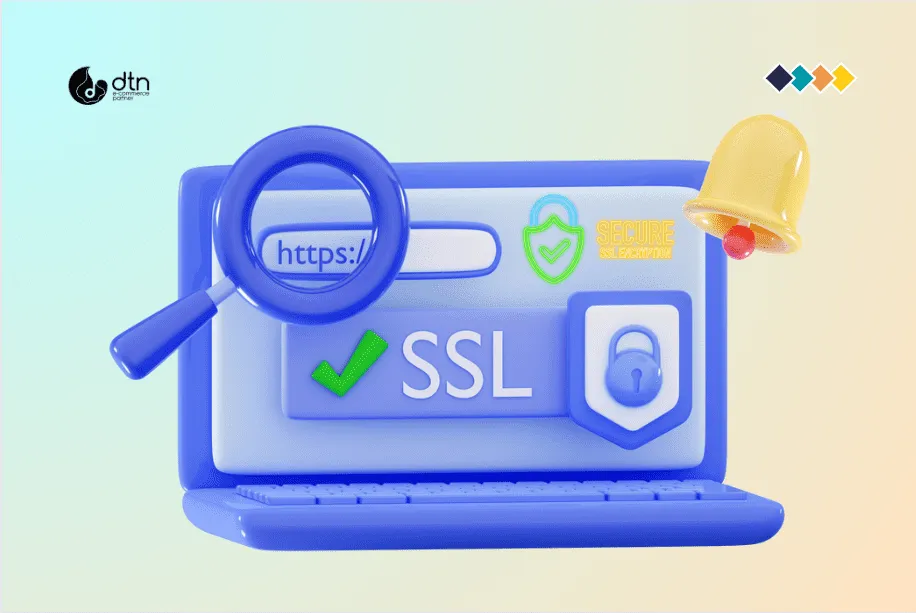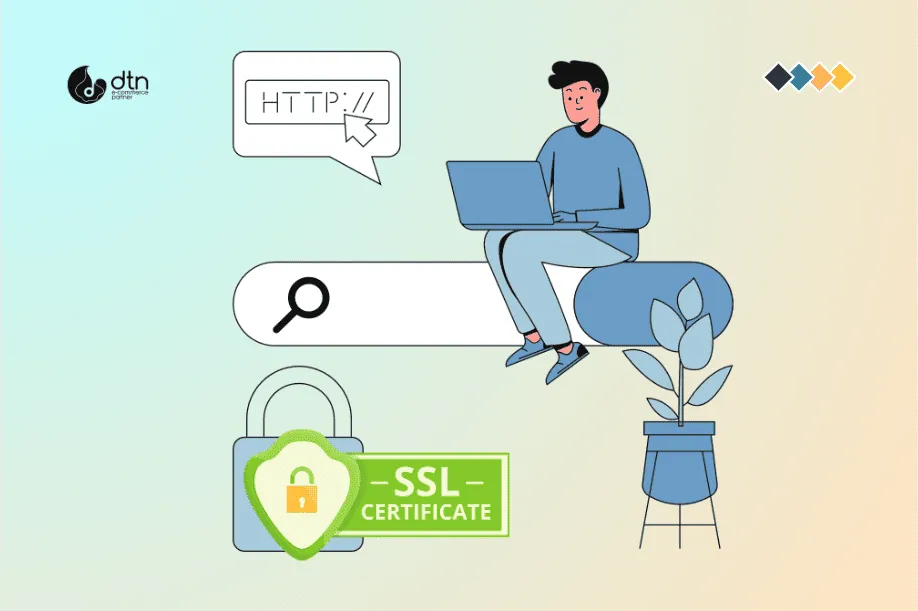In today’s digital world, online shopping has become an essential part of our lives. We buy everything from groceries to electronics to clothes online, and we expect our personal information to be safe and secure. That’s where SSL certificates and data encryption come in.
Table of Contents
SSL (Secure Sockets Layer) certificates are small data files that encrypt the connection between a website and a user’s browser. This means that any data that is exchanged between the two, such as credit card numbers or personal information, is protected from eavesdropping.
Data encryption is a process of converting data into a form that cannot be easily understood by unauthorized people. This is done using a secret key, which is only known to the sender and receiver of the data.
Both SSL certificates and data encryption are essential for protecting the security of your online store. Here’s a look at how they work and why you need them:
How SSL Certificates Work
SSL certificates work by creating a secure connection between a website and a user’s browser. This connection is encrypted, which means that any data that is exchanged between the two is protected from eavesdropping.
SSL certificates are issued by trusted certificate authorities (CAs). CAs are organizations that verify the identity of websites and issue SSL certificates to them. When a user visits a website that has an SSL certificate, their browser will check the certificate to make sure that it is valid. When the certificate is valid, the browser can establish a secure connection with the website.

How Data Encryption Works
Data encryption is a process of converting data into a form that cannot be easily understood by unauthorized people. This is done using a secret key, which is only known to the sender and receiver of the data.
There are many different data encryption algorithms, but the most common one is AES (Advanced Encryption Standard). AES is a symmetric-key algorithm, which means that the same key is used to encrypt and decrypt data.

Why You Need SSL Certificates and Data Encryption
SSL certificates and data encryption are essential for protecting the security of your online store.
- Protect customer datSSL certificates and data encryption protect customer data from being intercepted and stolen. This includes sensitive information such as credit card numbers, personal information, and addresses.
- Build trust: SSL certificates and data encryption show customers that you are serious about security. This can help to build trust and confidence in your store, which can lead to increased sales.
- Comply with regulations: Many countries have regulations that require businesses to protect customer data. SSL certificates and data encryption can help you to comply with these regulations.

How to Get SSL Certificates and Data Encryption
There are a few different ways to get SSL certificates and data encryption for your online store.
- Use a hosting provider: Many hosting providers offer SSL certificates and data encryption as part of their services. This is often the easiest and most affordable way to get SSL certificates and data encryption.
- Buy an SSL certificate from a CA: You can also buy an SSL certificate directly from a CA. This is a good option if you want more control over your SSL certificate.
- Use a CDN: A CDN (content delivery network) can help you to improve the performance of your website and protect it from DDoS attacks. Many CDNs also offer SSL certificates and data encryption.

Conclusion
SSL certificates and data encryption are essential for protecting the security of your online store. They can help to protect customer data, build trust, and comply with regulations. If you don’t already have SSL certificates and data encryption, I urge you to get them as soon as possible.
Frequently Asked Questions
We’ve compiled a list of answers to common questions.
What is the difference between SSL certificates and data encryption?
SSL (Secure Sockets Layer) certificates are small data files that encrypt the connection between a website and a user’s browser. They ensure that any data exchanged between the two is protected from eavesdropping. On the other hand, data encryption is a process of converting data into a form that cannot be easily understood by unauthorized people, using a secret key known only to the sender and receiver of the data. SSL certificates primarily focus on securing the connection between the website and the user, while data encryption secures the actual data being transmitted.
How do SSL certificates and data encryption help protect customer data?
SSL certificates and data encryption play critical roles in protecting customer data by ensuring that sensitive information, such as credit card numbers and personal details, is encrypted during transmission. This encryption prevents unauthorized individuals from intercepting and deciphering the data as it travels between the user’s browser and the website’s server, thereby safeguarding it from potential breaches or theft.
Can SSL certificates and data encryption help my online store comply with regulations?
Indeed, SSL certificates and data encryption play crucial roles in helping your online store adhere to various regulations and standards concerning data security and privacy, including the General Data Protection Regulation (GDPR) in the European Union or the Payment Card Industry Data Security Standard (PCI DSS). Implementing these security measures demonstrates your commitment to protecting customer data, which is often a requirement for legal compliance.
To ensure the proper implementation and maintenance of SSL certificates and data encryption for your online store, consider working with reputable hosting providers, CDNs, or security experts who specialize in web security. Regularly monitor your SSL certificates for validity and expiration dates, and stay informed about updates or vulnerabilities in encryption protocols to address any security risks promptly. Additionally, implement best practices for data encryption, such as using strong encryption algorithms and securely managing encryption keys.



